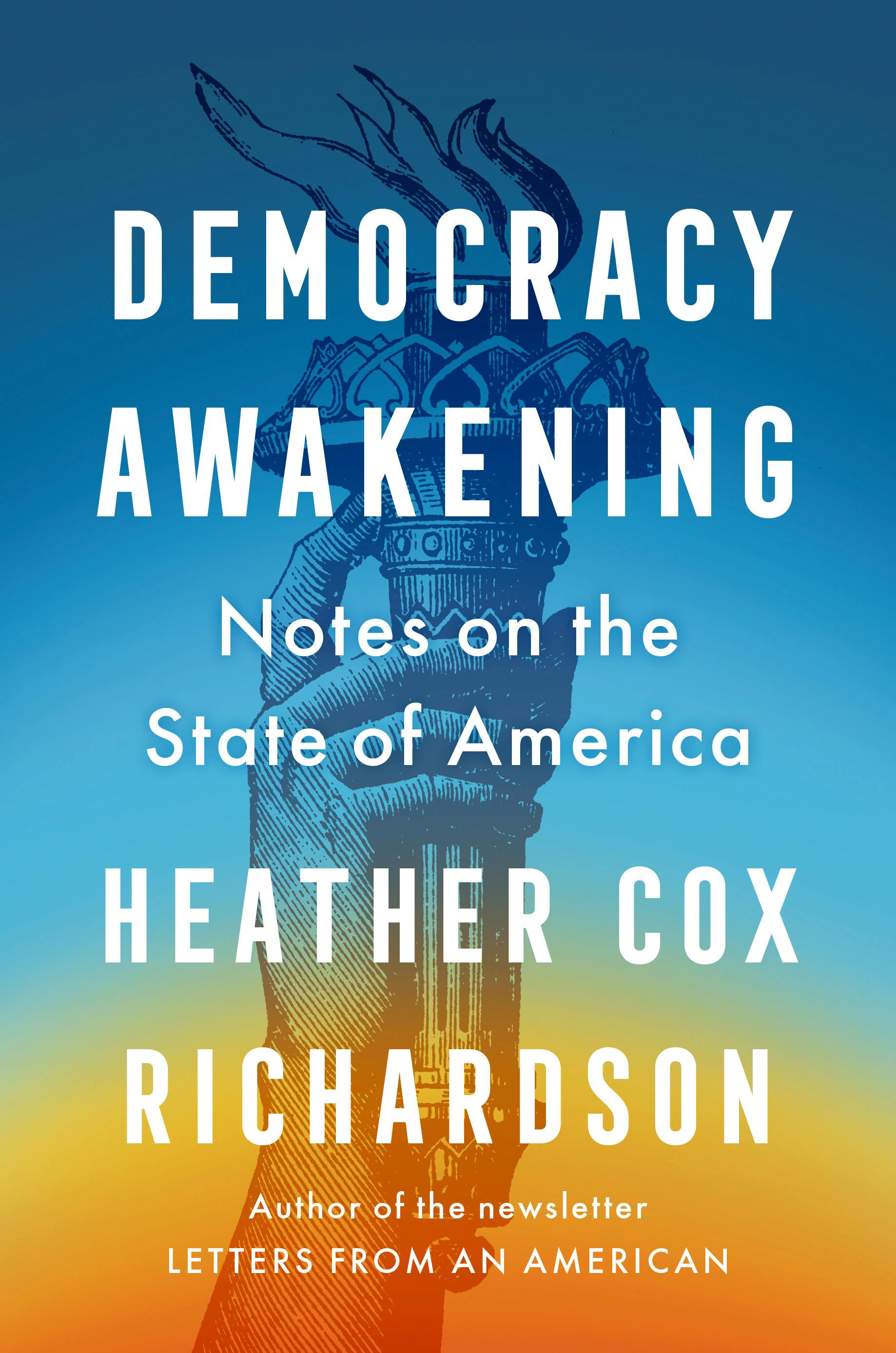- The predicted Rapture that did not (of course) come true;
- How some Christians believe autism is demonic, and (of course) why they’re wrong;
- Paul Krugman on why Republicans cling to “right-wing economics”;
- Heather Cox Richardson, excerpting her new book, on how American is at the brink of authoritarianism.
To begin: we had another confidant set of religious predictions in the past couple weeks, about a Biblical “Rapture” to happen on Sept. 23rd, which of course did not come true. (Are we clear about what the “Rapture” means? Here’s Wikipedia. To us in the real world, it seems insane that anyone would believe this.)
This has happened over and over throughout history. They never learn. How do believers’ rationalize this kind of failure? There’s a long history of them doing so.

OnlySky, Captain Cassidy, 26 Sep 2023: Rapture Rapture everywhere, and not an empty pile of clothes to be found, subtitled “If reality could rein in some of these zealots, the Rapture would never have become a belief in the first place.”
Overview:
A number of Christians confidently predicted that the Rapture would occur by September 23, 2023.
Spoiler: No Rapture occurred. But this failure won’t deter potential prophets any more than it ever has. It works too well.
The article provides some interesting background about Pentecostals and the way they come up with predictions like this. A list of previous years such predictions were made and failed to happen, all the way back to the 1800s. Bible verses to support their predictions. (Do they not understand how the Bible came into existence??) Evangelicals who’ve promoted this. And why the idea appeals to evangelicals. This is all a case study in human psychology, ultimately explained by human evolution.
\\\
They’re wrong about this, too.

Salon, Matthew Rozsa, 26 Sep 2023: Autism is not “demonic” or a mistake, despite what some Christian pundits claim, subtitled “A lack of neurodiversity education perpetuates stigma against people who naturally have different brains”
Conservatives in general struggle to fit ranges of behaviors into tight little black and white boxes of bad vs. good, abnormal vs. normal, because for example, “God doesn’t make mistakes.” Piffle. But does evolution make mistakes? Why would gays exist, or autistic people exist, if they were detrimental to the survival of the species? Wouldn’t they have been filtered out by the process of natural selection — i.e. they wouldn’t have had children? A legitimate question. The answer seems to be: diversity. (And, they do have children, even the gays.) Different behaviors can be advantageous or detrimental in different circumstances. The writer here, who says he grew up as an autistic teenager and is a Jew, concludes:
As a Jew, I believe in God, and I do not consider myself to be a mistake. Quite to the contrary, I believe God and made humans diverse for a reason: To help our evolution, to keep us humble, create a rich and fascinating tapestry of life. Is it really so hard to recognize that? Why do these people have to think of anyone different as automatically evil?
\\\
One more time, Paul Krugman explains why Republicans cling to “right-wing economics.”

NY Times, Paul Krugman opinion, 25 Sep 2023: Soft Corruption and the Limits of Populism
Basically, it’s the familiar story: Republicans are beholden to the wealthy, who fund their campaigns, so the Republicans can pass tax cuts that benefit the wealthy. Krugman begins:
There are currently two clown shows — sorry, but let’s be honest — going on in the Republican Party. One is the intraparty fighting that seems extremely likely to cause a government shutdown a few days from now. The other is the fight over who will come a distant second to Donald Trump in the presidential primaries.
There are many strange aspects to both shows. But here’s the one that has long puzzled me: Everyone says that with the rise of MAGA, the G.O.P. has been taken over by populists. So why is the Republican Party’s economic ideology so elitist and antipopulist?
Their proposals involve (of course) tax cuts for the rich and cutting of government spending that benefits the working class:
The thing is, such proposals are deeply unpopular. It’s true that Americans tell pollsters that the government spends too much, but if you ask them about specific types of spending, the only area on which they say we spend too much is foreign aid, which is a trivial part of the budget. Oh, and most Americans still support aid to Ukraine.
So why aren’t there politicians who are right-wing on social issues, and populist in their spending priorities? There are in other countries.
Part of the answer may lie in the American right’s general mind-set, which valorizes harshness, not empathy. People who are drawn to MAGA tend to imagine that solving society’s problems should involve punishing people, not helping them.
Also, we shouldn’t underestimate the power of ignorance: MAGA politicians, who generally disdain any kind of expertise, may not have any clear idea of what the federal government does and where tax dollars go.
Then Krugman discusses exhibit A: Clarence Thomas, the supreme court justice who’s received many “favors from ultrawealthy conservatives, notably lavish free vacations.”
[D]oes anyone doubt that many politicians who favor tax cuts for the rich and reduced benefits for the working class, even as they rail against elites, receive similar favors?
Krugman mentions Democratic Senator Robert Menendez and his problems, but he’s the exception that proves the rule. That is, that it’s mostly Republicans, rarely Democrats, who do these kind of things.
\\\

Heather Cox Richardson, the history professor who writes a Substack blog called Letters from an American, which I’ve quoted from several times recently, has a new book out today, Democracy Awakening: Notes on the State of America, which I pre-ordered and received my copy of today.
The New Republic‘s site has an excerpt from the book’s Foreword.
The New Republic, Heather Cox Richardson, 26 Sep 2023: The Fight for Our America, subtitled “There have always been two Americas. One based in religious zeal, mythology, and inequality; and one grounded in rule of the people and the pursuit of equality. This next election may determine which one prevails.”
The Crisis Upon Us
America is at a crossroads.
A country that once stood as the global symbol of democracy has been teetering on the brink of authoritarianism.
How did this happen? Is the fall of democracy in the United States inevitable? And if not, how can we reclaim our democratic principles?
This crisis in American democracy crept up on many of us. For generations of Americans, grainy news footage from World War II showing row upon row of Nazi soldiers goose-stepping in military parades tricked us into thinking that the Adolf Hitlers of the world arrive at the head of giant armies. So long as we didn’t see tanks in our streets, we imagined that democracy was secure. But in fact, Hitler’s rise to absolute power began with his consolidation of political influence to win 36.8 percent of the vote in 1932, which he parlayed into a deal to become German chancellor. The absolute dictatorship came afterward.
Democracies die more often through the ballot box than at gunpoint.
But why would voters give away their power to autocrats who inevitably destroy their livelihoods and sometimes execute their neighbors?
In the aftermath of World War II, scholars invested a great deal of energy in trying to explain how, in the 1930s, ordinary Germans whose constitution was one of the most democratic in the world had been persuaded to stand behind a fascist government whose policies led to the destruction of cities, made millions homeless, and created such a shortage of food that Germans were eking by on less than 1,500 calories a day. That government also ultimately murdered six million Jews and millions more Slavs, Roma, sexual minorities, disabled individuals, and dissenters.
Social scientists noted that the economic and political instability in Germany after World War I was crucial for Hitler’s rise. But it took writers, philosophers, and historians to explain how authoritarians like Hitler harnessed societal instability into their own service.
The key to the rise of authoritarians, they explained, is their use of language and false history.
Authoritarians rise when economic, social, political, or religious change makes members of a formerly powerful group feel as if they have been left behind. Their frustration makes them vulnerable to leaders who promise to make them dominant again. A strongman downplays the real conditions that have created their problems and tells them that the only reason they have been dispossessed is that enemies have cheated them of power.
It goes on; the excerpt is quite long. And it dovetails with the new short book by Lee McIntyre I’m now reading, On Disinformation, which is about how authoritarians rise to power by deliberately feeding misinformation, to their advantage, to the public. Some of us public understand what’s going on; many many, apparently, do not. They’re not so much fools, as victims. And as a display of human nature, this will never go away.





